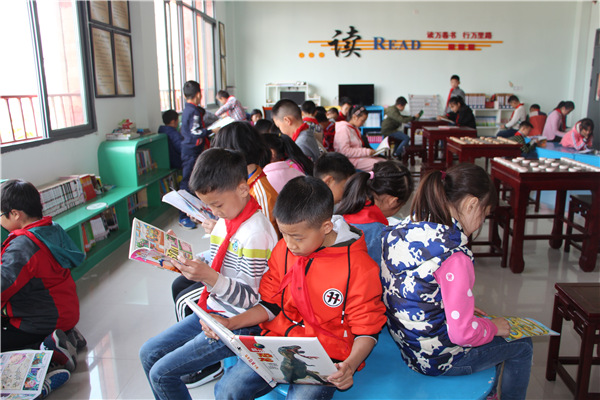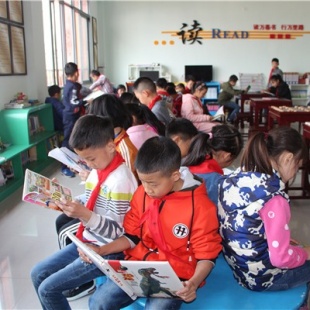Lessons from rural schools


A new book compiles essays by headmasters in remote areas about the challenges to, and achievements in, education in China's vast countryside.
Yang Hui was startled when a silhouette dashed across the primary school's campus in the dark and hid behind a tree.
"Who's there?" the headmaster yelled. "Get out of here! Come out so I can see you!"
To her surprise, it wasn't an intruder but rather a student who eventually emerged, recalls the headmaster of Xinjin Central Primary School in Hainan province's Qiongzhong Li and Miao autonomous county.
It was 12-year-old Wang Mingda, a shy boy who excelled at soccer but struggled in class.
"Why haven't you gone home?" Yang asked.
"It's so late."
It was 9:30 pm.
The boy explained that his aunt-who, along with his grandfather, tried to take care of him since his parents couldn't-had told him she couldn't send him to the soccer match the next morning.
So, he planned to hide on campus overnight so he could make the game.
Yang learned that the boy's mother had abandoned him to remarry. His father, who was disabled by a fall, tried to work as a migrant in cities.
"Mingda was lonely and dejected without parental supervision. He gradually lost interest in learning and communicating with others," Yang explains.
"Soccer was his only joy. So, he didn't want to miss the game, even if that meant he couldn't go home and had to sleep outside on a stone bench for the night. I told him students and teachers want to make friends with people like him, who have dreams."
Yang prepared and shared an early breakfast with the boy before the game.
"He was the biggest star on the field that day," the headmaster recalls.
"He has changed since then. He likes to laugh and play with his classmates. And his studies have steadily improved."
Yang wrote about this story in a chapter in Levelling Mountain-high Gaps: Lessons from China's Leading Rural Educators, recently published by China Economic Publishing House. The book compiled by the NGO Visionary Education features essays by over 50 principals from schools in remote and underdeveloped areas throughout the country.



































